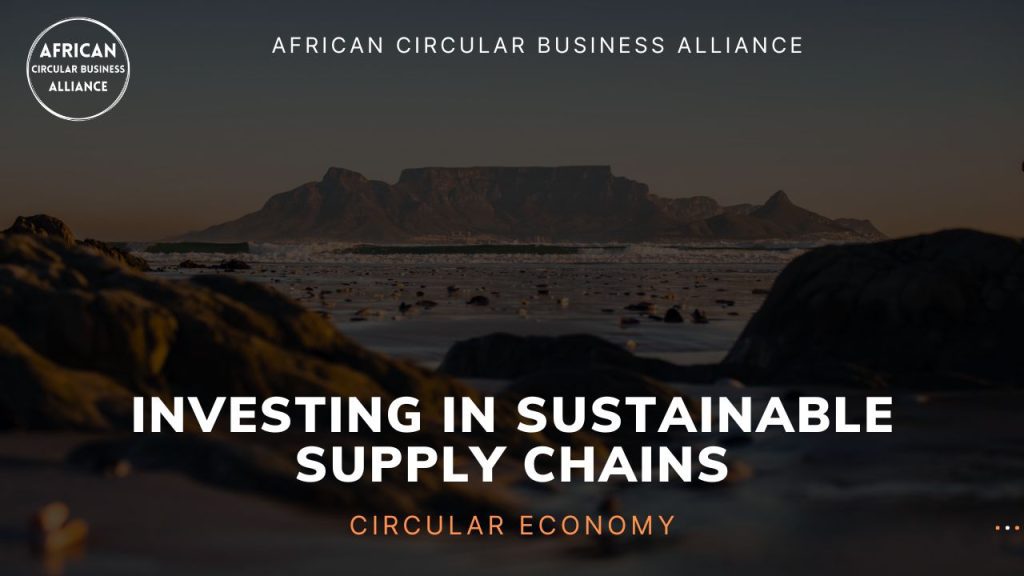
Sustainability has become an increasingly important issue in the business world, and investing in sustainable supply chains has emerged as a key strategy for achieving a more sustainable future. Sustainable supply chains are those that are designed to minimize negative environmental and social impacts, while also ensuring the long-term viability of the business. Investing in sustainable supply chains offers a range of benefits, both for the investor and for the broader society.
What are Sustainable Supply Chains?
Sustainable supply chains are those that are designed to minimize negative environmental and social impacts, while also ensuring the long-term viability of the business. This can involve a range of strategies, such as reducing carbon emissions, reducing waste and pollution, ensuring fair labour practices, and sourcing materials and products from sustainable sources.
Why Invest in Sustainable Supply Chains?
Investing in sustainable supply chains offers a range of benefits, both for the investor and for society as a whole. Here are a few:
- Risk mitigation: Sustainable supply chains are often more resilient to risks such as climate change, social unrest, and regulatory changes. By investing in sustainable supply chains, investors can help mitigate these risks and ensure the long-term viability of their investments.
- Cost savings: Sustainable supply chains can also help businesses to reduce their costs, by reducing material and resource consumption, and enabling the reuse and recycling of materials. This can translate into lower production costs, and ultimately, higher profits.
- Brand reputation: Investing in sustainable supply chains can also help businesses to enhance their brand reputation, by demonstrating their commitment to sustainability and social responsibility. This can help attract and retain customers, and ultimately, drive revenue growth.
- Positive social and environmental impacts: Investing in sustainable supply chains can also have a positive impact on society and the environment, by reducing negative environmental and social impacts, promoting sustainable practices, and supporting local communities.
How to Invest in Sustainable Supply Chains?
There are several ways in which investors can invest in sustainable supply chains. Here are a few:
- Direct investment: Investors can invest directly in sustainable supply chains, by purchasing shares of companies that are committed to sustainability and have sustainable supply chains. This can involve conducting research to identify companies with strong environmental and social records, and investing in them.
- ESG Funds: Another option is to invest in ESG (environmental, social, and governance) funds, which are investment vehicles that prioritize sustainability and social responsibility. These funds invest in companies that meet certain ESG criteria, such as those with sustainable supply chains.
- Impact Investing: Impact investing involves investing in companies or projects with the aim of generating positive social and environmental impacts, in addition to financial returns. This can involve investing in sustainable supply chains that support local communities, promote sustainable practices, and reduce negative environmental impacts.
Challenges of Investing in Sustainable Supply Chains
While investing in sustainable supply chains offers many benefits, there are also several challenges that need to be addressed. These include:
- Lack of transparency: Some companies may not be transparent about their sustainability practices, which can make it difficult for investors to assess their environmental and social impact.
- Limited investment opportunities: The pool of sustainable supply chain investment opportunities may be limited, particularly in certain sectors or regions.
- Regulatory barriers: Some regulatory frameworks may not support sustainable supply chains, which can create barriers to investment.
- Cost: Investing in sustainable supply chains may require higher initial costs, which can be a barrier to entry for some investors.
Conclusion
Investing in sustainable supply chains offers a range of benefits, both for investors and for society as a whole. By supporting sustainable practices, investors can help mitigate risks, reduce costs, enhance brand reputation, and generate positive social and environmental impacts. While there are some challenges to investing in sustainable supply chains, the potential benefits make it a worthwhile strategy for investors who are committed to sustainability and social development.
